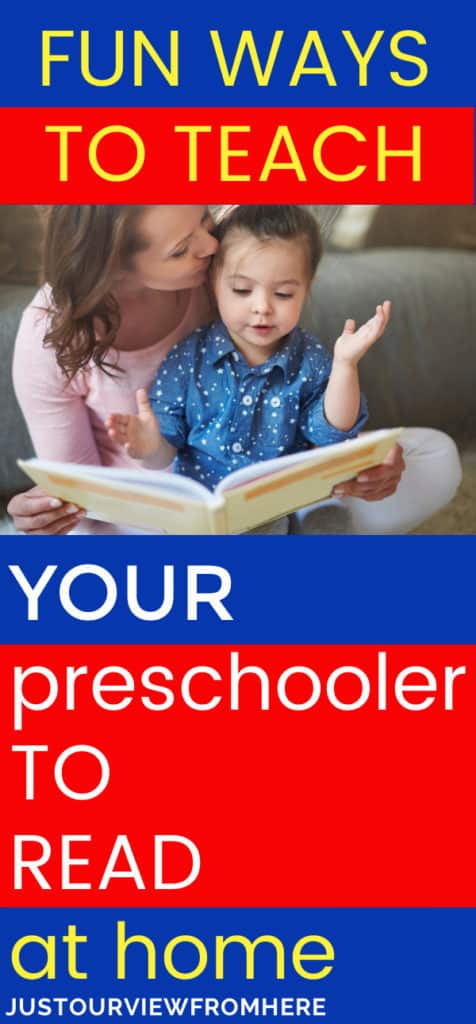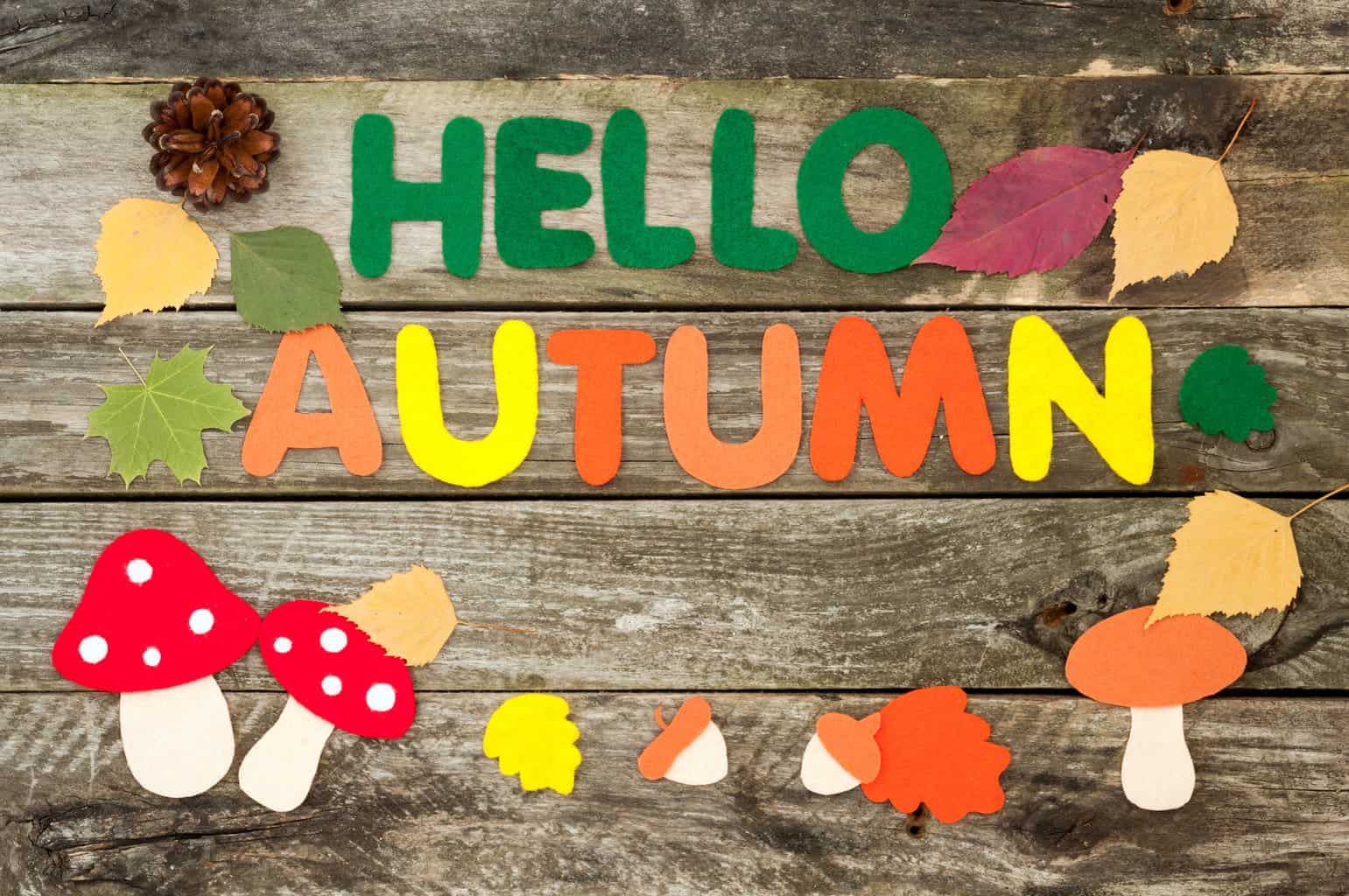Are You Wondering How To Raise A Reader?
When it comes to kids and reading, there’s one thing for sure. It’s never too early to start.
Reading with babies, toddlers, and preschoolers is by far one of the best things we as parents can do for our children. These 13 early literacy tips for parents will help you on your way!
Updated Feb 10, 2023.
In This Article:
13 Tips For Reading With Your Preschooler At Home
- Start simple
- Be consistent
- Let your child choose the book
- Have your child turn the pages
- Don’t force it
- Talk about the pictures
- Turn the book into a conversation
- Read with expression
- Read slowly and take time for pronunciation
- Ask your child questions about the story
- Consider chapter books
- Read yourself
- Have fun with it!
Some of my blog posts may contain affiliate links, from which I may receive a small commission at no additional cost to you. See more in our disclosure and privacy policy.
Benefits of Reading To Preschoolers & Toddlers
Curling up and opening a book with your child regularly can help tremendously to expand their vocabulary and early literacy skills.
Reading with your kids develops their imaginations and piques their curiosity about new things, places, and feelings. Not to mention, it is one of the best bonding experiences you can have. So, read early and read often!
Make The Most Out Of Reading With Your Preschooler
We know kids are all about fun, so, by all means, make it enjoyable! If you make it a pleasant experience for both you and your child, you will reap the biggest rewards. Plus, they will get a head start on their reading and comprehension skills, a great benefit for when they start school. You are your child’s first teacher, so it’s up to you to do your best and start them off on the right foot.
Don’t fret if you’re not sure where to begin.
I’m happy to share these super easy tips for reading with preschoolers that every parent can follow.
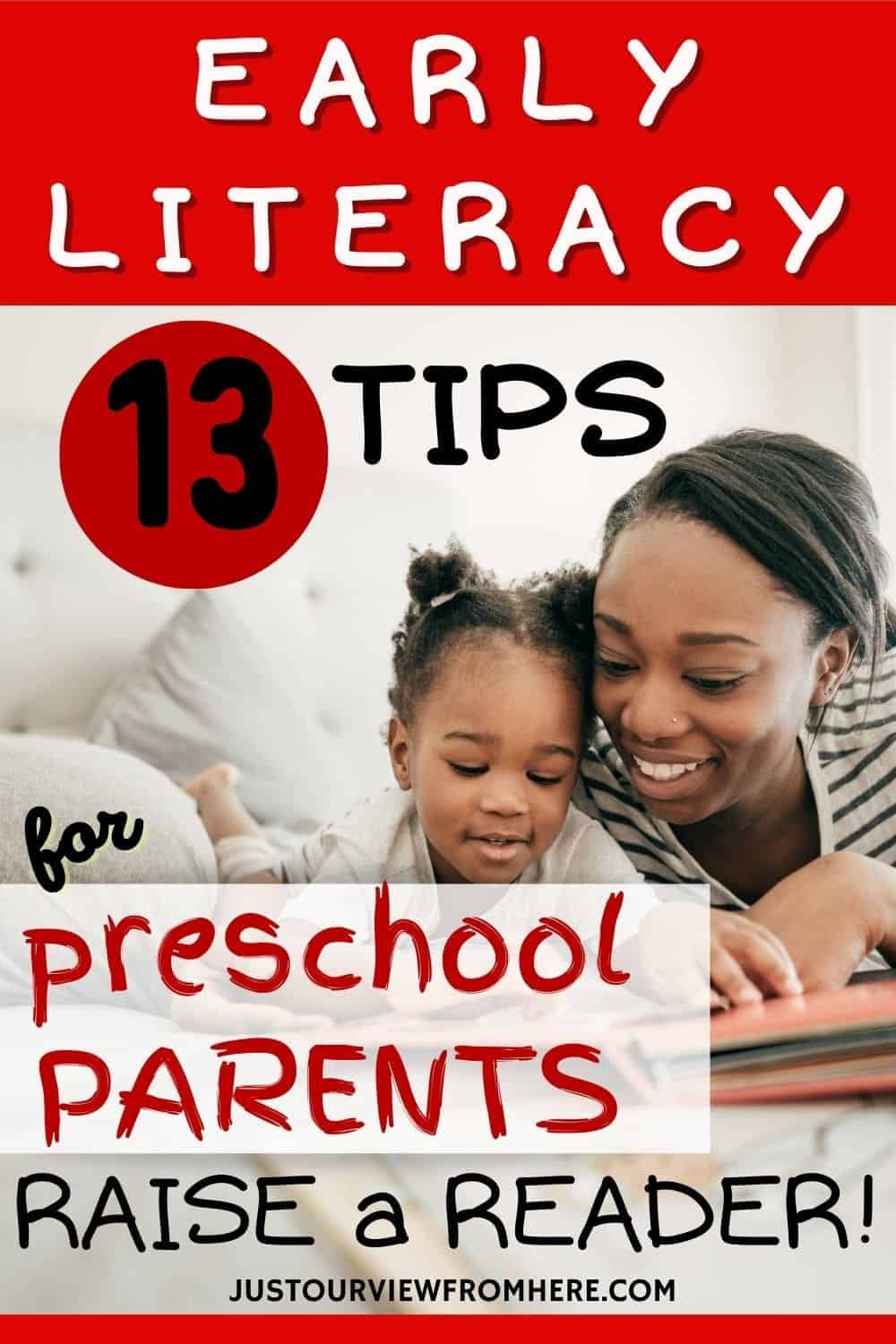
ever heard of The Million Word Gap?
There was an interesting study led by Jessica Logan at The Ohio State University which studied the effects of reading with preschoolers and how it positively impacts their vocabulary and preparedness for kindergarten.
It concluded that “Young children whose parents read them five books a day enter kindergarten having heard about 1.4 million more words than kids who were never read to. This ‘million-word gap’ could be one key in explaining differences in vocabulary and reading development.”
The study also found that “Even kids who are read only one book a day will hear about 290,000 more words by age 5 than those who don’t regularly read books with a parent or caregiver.”*
That is a striking difference! I found this article about the million-word gap quite eye-opening and have linked it below in the Resources section if you’d like to learn more.
13 Early Literacy Tips For Parents
Start Simple
Choose books that are appropriate for your child’s age and reading level.
A quick and easy guideline for this is the five-finger vocabulary check.
Ask your child to hold up five fingers (or hold up your own fingers) and read one page of a book. Each time your child doesn’t know a word, put one finger down. If all five fingers end up down, the book is too hard.
Simple right?
Once you figure this out, you can find books for your child that have the reading level printed on the spine or the cover.
Be Consistent
Whether it be in the morning after breakfast, naptime, or bedtime, it really doesn’t matter but be consistent.
Read to your child as frequently as you can. It truly can help them to get off to a great start education-wise.
Let Your Child Pick The Book
Kids at this stage of development love to assert their independence because let’s face it…they don’t have control over much in their lives as preschoolers and toddlers.
As your child develops his or her own little personality, individual interests will emerge. So, by having books that appeal to those interests, you’ll have a leg up.
Better yet, let them choose the books themselves.
There are endless wonderful books out there for preschoolers. So, be sure to keep a wide variety of books on hand.
And remember, children love repetition. Once they find a favorite, you may find yourself reading it for weeks on end.
Have Your Child Turn The Pages
I find reading to be a multi-sensory experience. You see the words of course, and hear the story being read aloud but you also feel the pages and perhaps the texture of the cover, and even smell the newness of a freshly printed book.
Maybe I’m weird but I have always liked those things about books!
Having your toddler turn the pages is an easy way to get them actively involved in the process of reading and keep them interested. It’s such a simple thing but it gives them a great sense of involvement and some control.
Just try to keep them from tasting the book! I know this can be challenging with young toddlers! 😉
You don’t even have to start books at the beginning every time. If your child has a favorite part of the story and sometimes wants to start there, so be it!
As your child gets a bit older and progresses, you can work on reading the story from start to finish and get an idea of their comprehension skills.
Matthew Van Fleet has written all kinds of sensory experience books for babies and toddlers! His innovative books have been introducing children to basic concepts for over twenty years.
Van Fleet’s unique formats invite toddlers to touch, press, pull, lift, and even sniff as they explore animals, colors, shapes, numbers, letters, opposites, and more.
Our favorite book by this author was simply titled “Cat” and we read it over and over and over!
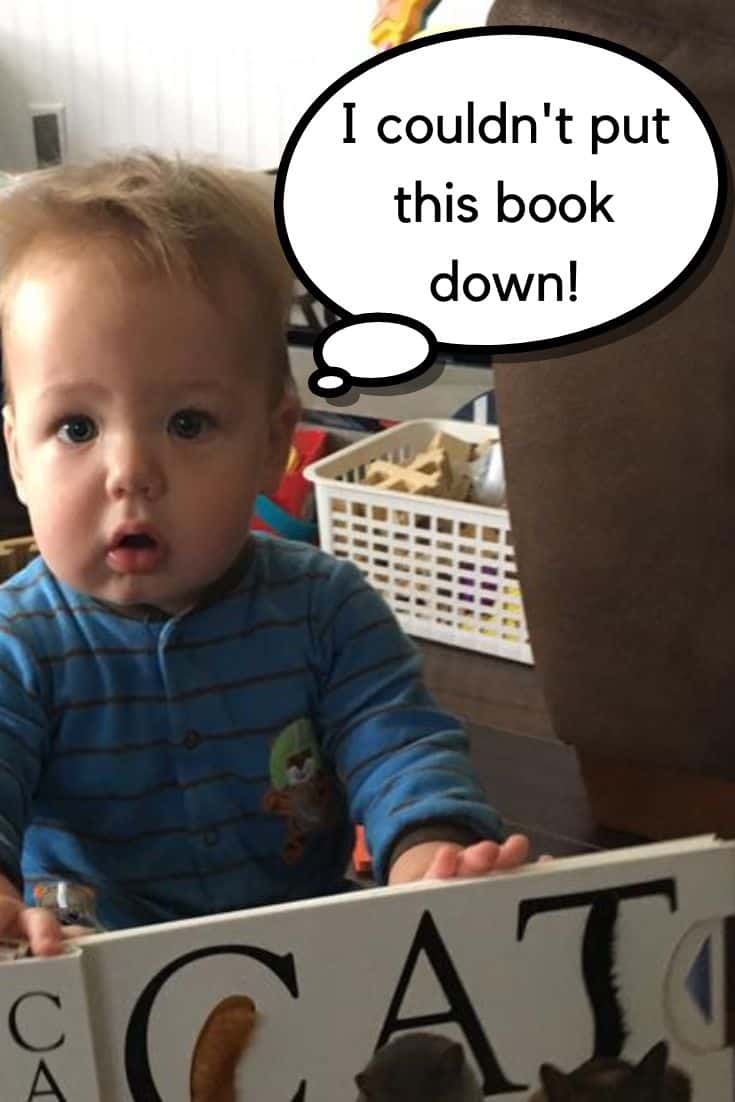
Don’t Force It!
If your child isn’t in the mood, don’t demand they sit and pay attention. Instead, try saying something like “Ok sweetheart, I’m going to read this book but you can play with your toys.” Continue to read the story out loud, even if they aren’t seeming to pay attention. Yes, you may feel a bit silly, but if you enjoy it, they might just come back and show some interest too. If they don’t, no worries, just try again later!
Not sure what your child’s reading level is? You can get a reading assessment and a ton of other awesome literacy resources for kids ages 2-12 with Reading IQ: Age of Learning. They offer the first month totally free so there’s nothing to lose!
Talk About The Pictures
Just being around books in any way shape or form is a good thing. If your little one is more interested in talking about the pictures, roll with it! Interest in the text will come later.
You can still point to the words as you go through the book but don’t add undue pressure. For example, if it’s a picture of a kitten in a tree your child may just want to talk about or describe the kitten or maybe comment on the scene. That’s a great place to start.
Turn A Book Into A Conversation
Asking your child how they think a character in the book is feeling gets them thinking about and understanding different emotions that they have.
Let’s carry on with the kitten example. You can say things like “Oh No! That poor little kitty! I wonder how he got up there?” Or, “I bet he’s a bit scared.”
Ask your child what they think will happen, how does the kitten feel, or who do they think will help get the kitten down from the tree. There are no hard and fast rules, just explore the story in whatever way your child sees it. You can let your child take the lead and run with it.
This is also a wonderful way to help your toddler or preschooler learn about emotions and help them to develop kindness and empathy.
Reading books about feelings with preschoolers is one of the best and easiest ways to help them become kind, compassionate little humans.
Little kids have big emotions that they don’t always understand. I really do feel it’s one of our top responsibilities as parents to help them learn to recognize feelings and express them properly. It takes time for kids to learn to regulate their emotions, and books can be very helpful in this process.
15 Fun & Sweet Emotions Books For Kids
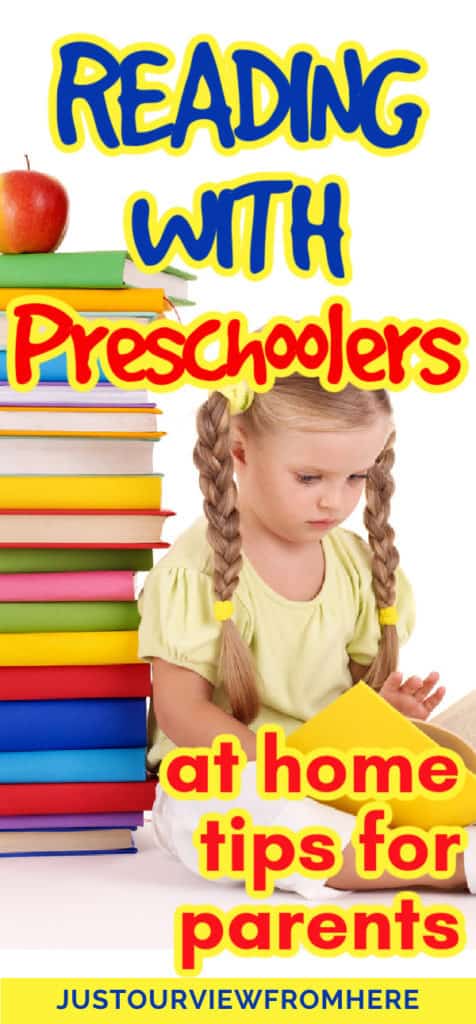
Read With Expression
Be enthusiastic and animated and read to your preschooler with a lot of expression. It’s fun to use different voices for the characters. Here at our house, I don’t dare read any of the Frog and Toad books without doing the gruff-sounding voice for Toad and the high-pitched one for Frog. If I slip up, believe me, my 3-year-old reminds me.
Trust me, I know we all have those nights when we go on autopilot at bedtime. Perhaps we are crabby or tired after a long day, and might read in a lackluster fashion. I’m guilty of that too sometimes! We are only human after all and no one is perfect.
But for the most part, read that little book to your kid like it is the most interesting gosh darn thing you’ve ever heard. Make a conscious effort to use your best “kindergarten teacher voice.” (Hats off to any kindergarten teachers reading this, by the way. You have one of the hardest jobs and you rock!
How The Heck Do I Handle The 2 Year Old Nap Strike?
Terrible Twos and Other Stages of Kidhood
Read Slowly And Take Time For Pronunciation
Reading slowly allows your child to follow the sound of your voice and helps them to learn letter and letter combination sounds. You can even exaggerate pronunciation so it’s easier for your child to hear these sounds and blends.
Most of the words, as you start on your reading adventure with your child, will be short and sweet.
At first, they will begin to learn sight words such as, a, at, am, be, i, or etc. Next, they will move on to longer and more complex ones like after, been, car, boy, look, and so forth.
There are some great learning apps that can help preschoolers with reading skills as well. We loved the Starfall ABC’s app when we were first starting out. ABCya is another app we love and the free version is quite good!
Flashcards and ABC 123 Workbooks are also fun and effective ways to work on early literacy and number skills. With our son, we do a combination of phonetic learning and sight words and try to immerse reading naturally into our day.
We point out street signs, billboards, storefronts, cereal boxes…really anything that has writing on it can be helpful. Remember, keep it fun!
Ask Them Questions About The Story
Another great tip when reading with preschoolers is to pause during reading and ask questions about the story.
Can your child repeat back to you in their own words what is happening in the book? This will give you an idea of their reading comprehension skills. Kids can definitely memorize words and books, which speaks to a different skill set (and it’s not a bad thing). So try this with a new book or one they’ve only read a few times.
They also may come up with their own version of the story by thinking outside the box. Encourage that creativity! As long as it is along the same lines as the original story, you’re doing great.
The older they get and the more you work on reading comprehension together, the more skillful they will become at retelling the story accurately.
Awesome Outer Space Books For Toddlers and Preschoolers
Consider Chapter Books
Each day you can read a chapter of the book, talk about it, and imagine what may happen next. The following day pick up where you left off and see what they remember about the previous chapter.
Choose a book with short chapters, around 5-10 pages, and vivid illustrations that will keep their interest.
This is something we haven’t tried yet but are really looking forward to doing.
Read Yourself
Lead by example!
It’s no secret that kids learn from what they see around them each and every day. So, it stands to reason that if you are a reader and keep a wide variety of books and other reading materials in your home, your child will follow in your footsteps.
We all tend to read articles about current events on our phones or laptops but make a conscious effort to pick up an actual book or even a magazine regularly.
Choose a genre that brings you joy, whether it’s mystery, romance, or non-fiction. It is most certainly one of the simplest things we can do as parents to raise a reader.
Have Fun With It!
Lastly, just have fun with it! Reading with preschoolers can be such an enjoyable activity for both parent and child.
It’s one of the simple pleasures in life and a wonderful bonding experience. Cherish the time you have with your kids while they are little and still think that you are the cat’s meow.
Reading at home with your children will not only enhance their literacy and language skills and foster a love of books. It will create memories for both of you to last a lifetime.
Until Next Time, K.

Kelly Blakely is the founder and creative force behind Just Our View From Here. As a first-time mom over 40, she brings a fresh perspective to parenting and family life on her blog. Kelly also explores a wide range of lifestyle topics in her writing, including fashion, beauty, self-care, and well-being.
Just Our View From Here is a participant in the Amazon Services LLC Associates Program, an affiliate advertising program designed to provide a means for sites to earn advertising fees by advertising and linking to Amazon.com.
More Articles For You!
Great Read-Aloud Books For 2-3 Year Olds
Best Books To Read With Your Toddler
How To Teach Alphabets To Preschoolers (11 FUN Ways!)
13 Fun & Silly Read Alouds For Kindergarten, Grade 1 & 2
Benefits Of Taking Your Kids To The Library
11 Compelling Reasons to Bring Your Kids to the Library A Library is a magical…
Seeing You Grow Up Quotes: A Journey Through the Stages of Childhood
Don’t Blink: Beautiful & Inspiring Quotes About Kids Growing Up For Every Stage And Age…
12 Days Of Christmas Activities
Unforgettable 12 Days of Christmas Activities for Families The holiday season is a time for…
The Best Educational Toddler Shows on Netflix
Streaming Smarts: Unleash the Power of Netflix for Your Little Learners! Hello, super moms and…
Anti-Bullying Books to Promote Kindness and Empathy in Children
Bully-Proof Your Reading List: 17 Picture Books for kids In honor of National Bullying Prevention…
Easy Fall Arts And Crafts Ideas For Kids
Simple Autumn Arts And Crafts For September & October It’s fall y’all! It’s the perfect…
Resources
* Million Word Gap by Science Daily
7 Tips For Reading Chapter Books by Sarah at The Stay At Home Educator
Phonics or Sight Words-Teaching Kids To Read by This Reading Mama
Early Literacy Skills and How To Encourage Them by Read And Spell
